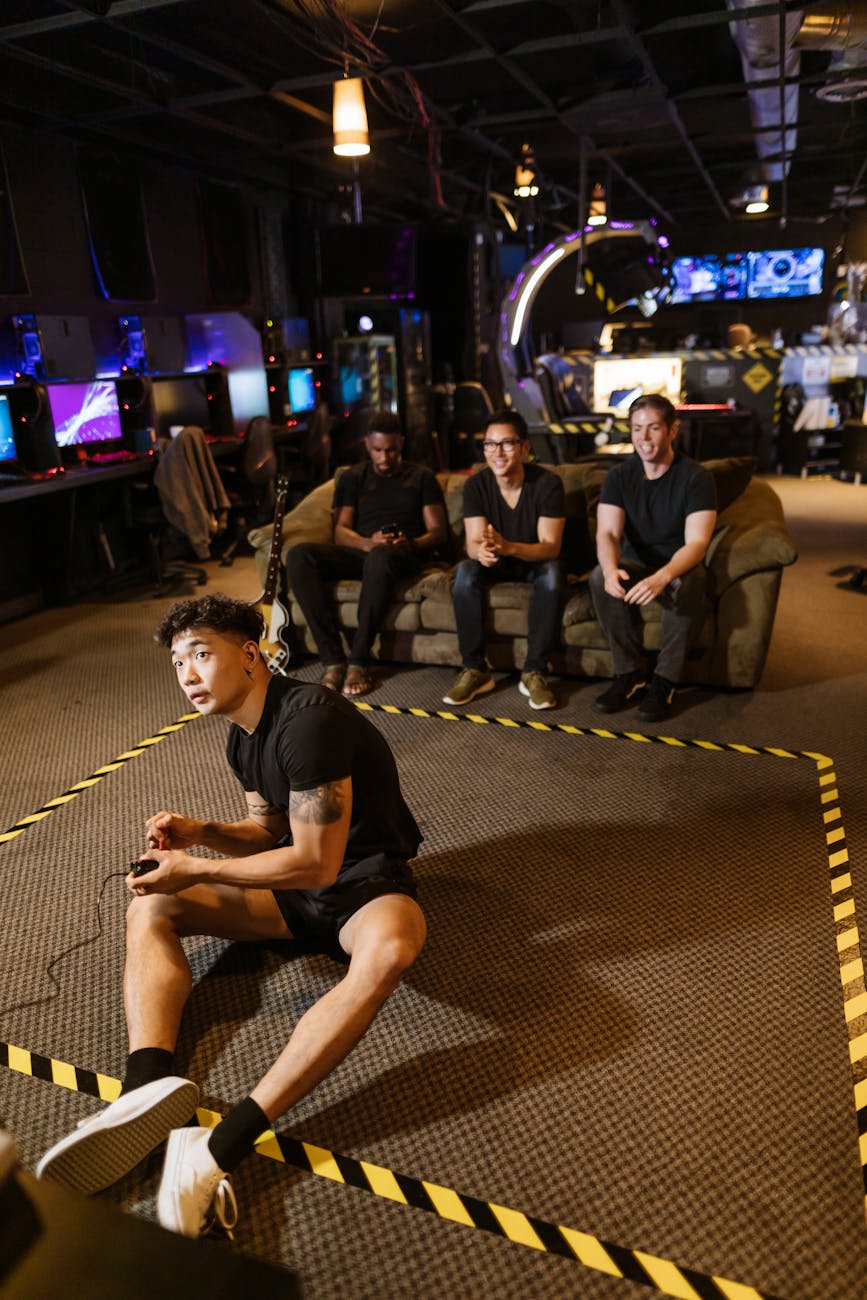Gaming has evolved far beyond solitary experiences in dimly lit rooms. Today, it is a vibrant, interconnected ecosystem characterized by rich cultures and dynamic communities. These digital spaces foster genuine social bonds, create shared narratives, and empower individuals to express themselves in novel ways. From the collaborative spirit of online multiplayer games to the shared passion for esports, the culture and community surrounding modern gaming are as diverse and complex as the games themselves. This exploration will delve into the multifaceted nature of this evolving landscape, examining how these communities are built, sustained, and how they, in turn, shape the very fabric of gaming.
The rise of online communities
The advent of widespread internet connectivity fundamentally reshaped the gaming landscape. No longer confined to local multiplayer sessions or single-player adventures, players could connect with others across the globe. This shift gave rise to the ubiquitous online multiplayer game, a genre that thrives on interaction and cooperation. Games like World of Warcraft, League of Legends, and Fortnite are not just about skill and strategy; they are about building persistent worlds where friendships are forged, rivalries are born, and shared goals drive engagement. These virtual spaces have become primary social hubs for many, offering a sense of belonging and shared purpose that transcends geographical boundaries. The communication tools within these games, from in-game chat to voice communication, facilitate immediate interaction, allowing for synchronized gameplay and the development of intricate social dynamics. This connectivity has transformed gaming from a hobby into a deeply social activity for millions.
Esports: from niche to mainstream
The competitive aspect of gaming has exploded into the phenomenon known as esports. What began as informal tournaments among friends has matured into a professional industry with dedicated leagues, massive prize pools, and legions of passionate fans. The infrastructure supporting esports is now comparable to traditional sports, complete with team organizations, sponsorships, and professional athletes. This growth has created a distinct culture surrounding competitive gaming, characterized by intense dedication, strategic analysis, and a shared appreciation for high-level play. Watching professional esports matches has become a spectator sport in itself, with live events drawing thousands and online streams attracting millions of viewers. This professionalization not only validates the skills of top gamers but also elevates the perception of gaming as a legitimate and engaging activity for a global audience.
Content creation and the influencer phenomenon
The rise of streaming platforms like Twitch and YouTube Gaming has democratized gaming content creation. Players can now broadcast their gameplay live, share highlights, and build audiences around their personalities and skills. This has given birth to a new generation of influencers and content creators who act as community leaders, educators, and entertainers. These individuals play a crucial role in shaping trends, introducing new games, and fostering discussion within their communities. Their interactions with viewers create a sense of intimacy and personal connection, making the audience feel like they are part of a select group. This creator-audience dynamic fosters a participatory culture where feedback and engagement are highly valued, further strengthening community bonds and influencing game development itself through direct player input.
The evolving player base and inclusivity
One of the most significant transformations in modern gaming culture is the increasing diversity of its player base. Historically perceived as a predominantly male hobby, gaming now attracts individuals of all genders, ages, ethnicities, and backgrounds. This expanding demographic has led to a greater demand for diverse representation in games and a more inclusive community. Many games and platforms are actively working to create safer and more welcoming environments for all players, combating toxicity and promoting respectful interactions. Initiatives focused on accessibility, representation, and community moderation are crucial in ensuring that gaming can be enjoyed by everyone. This ongoing evolution signifies a maturing industry that recognizes the value of a broad and inclusive player base, enriching the overall gaming experience for all.
Key demographics in modern gaming
| Demographic | Approximate Percentage of Gamers |
|---|---|
| Overall | ~90% of US households |
| Age 18-34 | ~38% |
| Age 35-54 | ~36% |
| Female Gamers | ~45% |
| Male Gamers | ~55% |
Note: Data is an approximation based on general industry trends and may vary by region and source.
In conclusion, the culture and community of modern gaming are far more than just a shared interest in digital entertainment. They represent dynamic, evolving social ecosystems built on connection, collaboration, and shared passion. From the grassroots formation of online guilds to the global spectacle of esports and the personal touch of content creators, these communities offer a profound sense of belonging. The increasing diversity and focus on inclusivity further underscore gaming’s transformation into a universally accessible and deeply human experience. These digital realms are not just spaces for play; they are vibrant extensions of our social lives, fostering friendships, shaping identities, and continuously redefining what it means to be a gamer in the 21st century. The future of gaming is undeniably intertwined with the strength and breadth of its ever-growing communities.
Image by: RDNE Stock project
https://www.pexels.com/@rdne


